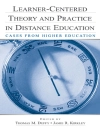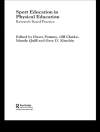Exoticisation undressed is an innovative ethnography that makes visible the many layers through which our understandings of indigenous cultures are filtered and their inherent power to distort and refract understanding. The book focuses in detail on the clothing practices of the Emberá in Panama, an Amerindian ethnic group, who have gained national and international visibility through their engagement with indigenous tourism. The very act of gaining visibility while wearing indigenous attire has encouraged among some Emberá communities a closer identification with an indigenous identity and a more confident representational awareness. The clothes that the Emberá wear are not simply used to convey messages, but also become constitutive of their intended messages. By wearing indigenous-
and-modern clothes, the Emberá-who are often seen by outsiders as shadows of a vanishing world-reclaim their place as citizens of a contemporary nation. Through reflexive engagement,
Exoticisation undressed exposes the workings of ethnographic nostalgia and the Western quest for a singular, primordial authenticity, unravelling instead new layers of complexity that reverse and subvert exoticisation.
สารบัญ
1 Introduction: Nostalgia, invisible clothes, and hidden motivations
2 Static sketches in transformation
3 A story about Emberá clothes
4 Ghosts of Emberá past
5 Ghosts of Emberá present
6 Representational self-awareness
7 Shifting codes of dress
8 Three authentic Emberá discontinuities
9 Indigenous-and-modern Emberá clothes
References












